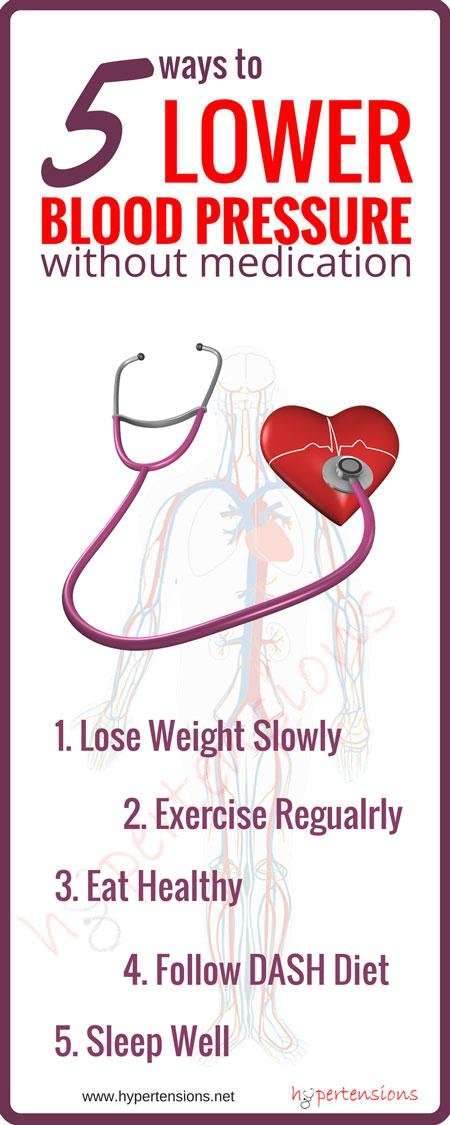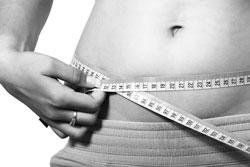Don't let high blood pressure control your life! It's often called the "silent killer" because it frequently has no symptoms until it reaches dangerous levels.
This can lead to undetected damage to your heart and arteries for years. However, the good news is you can take charge of your health and control high blood pressure naturally through lifestyle changes.
Here, we'll explore effective strategies to reduce blood pressure without medication and empower you to live a long, healthy life.
Understanding High Blood Pressure (Hypertension)
High blood pressure, also known as hypertension, is a serious condition where the force of blood pushing against your artery walls is consistently too high. This can strain your heart and increase your risk of heart attack, stroke, and other health problems.
Symptoms of High Blood Pressure
While high blood pressure often has no noticeable symptoms, some people may experience:
- Headaches
- Shortness of breath
- Nosebleeds
- Fatigue
- Difficulty sleeping
If you're experiencing any of these symptoms, it's crucial to schedule an appointment with your doctor to get your blood pressure checked.
Natural Ways to Lower Blood Pressure
While medication may be necessary in some cases, there are many natural ways to manage hypertension and keep your blood pressure in a healthy range (1). Here are some key strategies:

Embrace a Heart-Healthy Diet: Healthy Diet for Blood Pressure
What you eat significantly impacts your blood pressure. Ditch the processed foods and sugary drinks laden with unhealthy fats and sodium. Focus on a balanced diet rich in fruits, vegetables, whole grains, and lean protein sources. These nutrient-rich options can help regulate blood pressure and promote overall heart health.
Move Your Body Regularly
Exercise is a powerful tool for lowering blood pressure. Aim for at least 30 minutes of moderate-intensity physical activity most days of the week. Brisk walking, swimming, cycling – any activity that gets your heart rate up and keeps it elevated for a sustained period is fantastic.
Regular exercise strengthens your heart muscle, improves blood circulation, and helps you maintain a healthy weight, all of which contribute to a reduced risk of high blood pressure.
Manage Stress Effectively
Chronic stress can take a toll on your blood pressure by increasing stress hormones that constrict blood vessels. Explore relaxation techniques like meditation, yoga, or deep breathing exercises to help you unwind and de-stress.
Getting enough quality sleep is also crucial for effective stress management. When you're stressed, your body releases hormones that can damage your arteries and increase your risk of blood clots.
Maintain a Healthy Weight
Being overweight or obese puts a significant strain on your heart. Even shedding a moderate amount of weight can make a substantial difference in your blood pressure.

There are many healthy weight loss plans available, such as portion control, mindful eating, and incorporating more physical activity into your daily routine.
Limit Sodium Intake
Sodium is a major culprit in raising blood pressure. Focus on reducing your sodium intake by cooking more meals at home, using herbs and spices for flavor instead of salt, and checking food labels carefully. Pay attention to hidden sodium in processed foods, canned goods, and restaurant meals.
Increase Potassium Intake, it helps regulate blood pressure by counteracting the effects of sodium. Load up on fruits and vegetables like bananas, oranges, leafy greens, and potatoes, all naturally rich in potassium.
Consider the DASH Diet
The DASH (Dietary Approaches to Stop Hypertension) diet is a proven strategy for lowering blood pressure.
It emphasizes fruits, vegetables, whole grains, and lean protein sources, with limited sodium, added sugars, and unhealthy fats. This dietary pattern helps to lower blood pressure through various mechanisms, including reducing sodium intake, increasing potassium intake, and providing other beneficial nutrients.
Quit smoking for blood pressure
Smoking is one of the worst habits for your heart health. It damages your blood vessels and significantly increases your risk of high blood pressure.
Prioritize Sleep
Aim for 7-8 hours of quality sleep each night. When you're well-rested, your body can better regulate blood pressure and manage stress hormones. Establish a regular sleep schedule, create a relaxing bedtime routine, and ensure your bedroom environment is conducive to restful sleep.
Limit Alcohol Consumption
Heavy alcohol consumption can raise your blood pressure. Discuss with your doctor how much alcohol is safe for you, and practice moderation.
Reduce Caffeine Intake
While the long-term effects of caffeine on blood pressure are still being researched, some studies suggest it can cause temporary spikes. If you're sensitive to caffeine, consider reducing your intake or switching to decaffeinated beverages.
Monitor Your Blood Pressure Regularly:
Keeping track of your blood pressure readings at home empowers you to monitor progress and make adjustments to your lifestyle plan as needed. Talk to your doctor about the right home blood pressure monitor for you and how often to take measurements.
Explore Natural Remedies
Some natural remedies, like certain herbs and supplements, may offer additional support for lowering blood pressure. However, it's crucial to consult with your doctor before using any supplements to ensure they are safe for you and won't interact with any medications you're already taking.
Seek Support and Stay Motivated
Managing high blood pressure is a lifelong commitment. Surround yourself with a supportive network of family, friends, or a healthcare professional. There are also online communities and support groups available to help you stay motivated on your journey to healthier blood pressure.
Remember: Consistency is key! By incorporating these natural strategies into your daily routine, you can effectively manage your blood pressure and live a long, healthy life. If you have any concerns or questions, always consult with your doctor to create a personalized plan for managing your high blood pressure.

